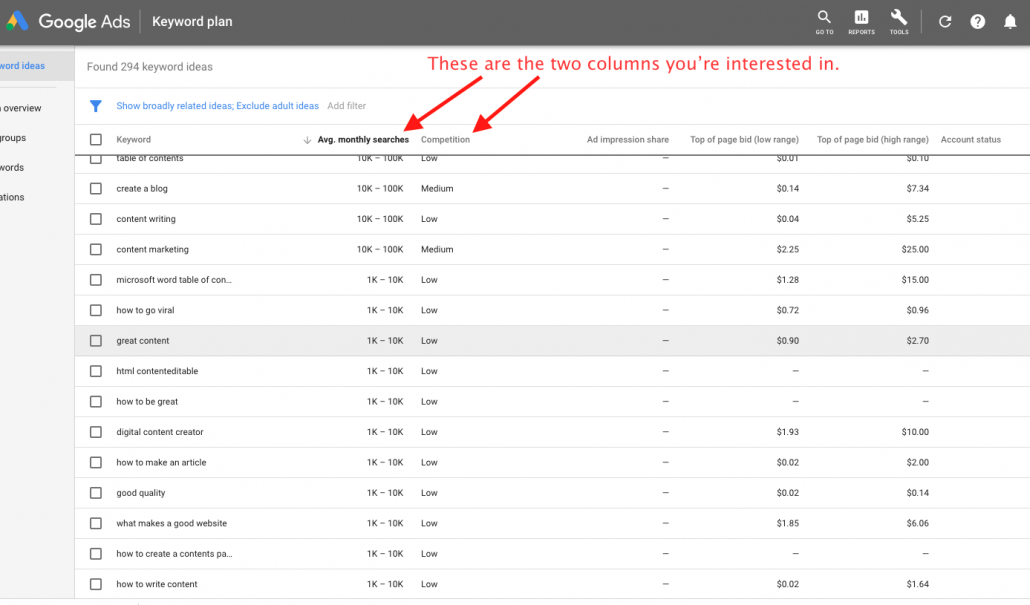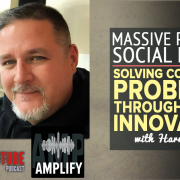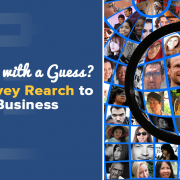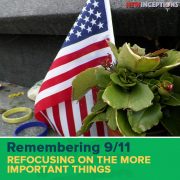Profit or Popularity? How Deep Focus Might be the Key to Your Success
Deep focus and work is a topic which is really popular these days. However, it tends to go against the prevailing advice on how to become an online entrepreneur/personality. Personally, I’ve seen a lot of benefit by incorporating it in my schedule. In this post, I’ll share with you how I learned the hard way about the benefits of deep focus as a creator.
Setting the Stage
If you’ve been following the blog and podcast, you’ve probably realized that I’ve cut back on how many of each I publish. For a few months now, I’ve been on a schedule where I post a blog post one week and then the next week, I publish an interview.
But that wasn’t how I did things when I first started my online journey. In fact, I posted a blog post and an interview each week.
Even though I felt like I was doing what I was supposed to do as a new entrepreneur/thought leader, I didn’t feel like I was getting anywhere. But I kept pushing through for two years, believing I was doing what I was supposed to do.
However, towards the end of that two year period, I started hearing and seeing signs that I had to change things up.
And eventually those signs lead to the discovery of the M-6 Business Evolution Plan.
Signs to Change
So what were these signs? Here’s three I can definitely remember:
The Importance of Deep Work and Focus
One of the earliest signs I can recall is hearing Jordan Harbinger’s interview of Cal Newport discussing his book Deep Work. In the interview, they discuss why focusing on your work for long periods of time is the only way to create anything meaningful. The reasoning behind this is because it takes awhile for our brains to snap into the right gear to create. If our days consists a lot of checking email, posting to and checking social media, you’ll never get into this deep work or deep focus state.
I knew I wasn’t getting into that deep state because I was EVERYWHERE!
Profitability vs Popularity
The second sign I remember was when one of our guests mentioned that her coach constantly has to ask her a simple question: Do you want to be profitable or do you want to be popular?
It had never occurred to me that in the online digital space, there was a choice. I thought that the only way to create revenue was to be popular. The more people who knew of you, the more chances you had to make a sale, right?
Apparently, that’s not the total idea.
Even more interesting is that in another interview we had, our guest mentioned how there are plenty of popular people on the web who can barely afford to keep their own business doors open. In fact, there’s way more of them than there are people who have followers and have an income from that following.
Start Where You’re At!
The third big sign was during my research of this whole thing about having a Personal Mission. This course of interest started when I heard David Anderson share about how important it is to him in his interview in session 92. I knew it was a piece I was missing. Uncover Your Personal Mission is the result of this 6 month study to figure out what my starting point should be. I now fully believe it’s imperative for someone to know where they’re at
Using the Right Road Map
So, it’s interesting how traditional online business advice suggests that you should be everywhere. I think it makes sense in the long run. But the market is so saturated with other entrepreneurs and thought leaders, that we have to realize we don’t have a chance in that game by ourselves. There’s just so much work we can do in a given day.
So what’s that mean for us? What’s our course of action? Well, this is where we need a new road map.
Road maps for entrepreneurs are nothing new. Fizzle has theirs, Pat Flynn has his in Will It Fly?, and then there’s the one featured in the documentary Generation: Freedom.
There’s a lot of good content in each of these. However, I think they get ahead of themselves a little in the beginning stages.
So, let’s look at this new road map:
The M-6 Business Evolution Plan
There are 6 parts of this new plan which can be used simultaneously with the previously mentioned road maps.
However, the main difference is that this particular plan, again, focuses on early growth and sustainability of your business. So, once you get to a certain level of success, then maybe it’s a good time to start “Being Everywhere” as Pat Flynn talked about way back in session 28 of the SPI Podcast. Because, remember, in today’s market, you have to have a team to compete with the other names out there because they probably have teams themselves!
So, here’s the new plan:
Mastery of Self
The reason that I start with Mastery of Self is because there are a lot of examples of folks who jump into a business idea because the marketing of a specific course said they’d have the potential to make all kinds of money doing that particular business. All they have to do is follow a step by step method.
Problem is, many people get burned out of these half-baked businesses because they didn’t do the inventory on themselves or they didn’t have the right frame of mind starting the business. They might have expected awesome results in a week or month and now it’s way beyond that point.
Mastery of Self is important because not only do we need to figure out who we are, but where we and our skills fit in the world.
From there, as we naturally build on ourselves and our skills, we have the potential for amazing growth.
So, for example, if you didn’t know that you’re good at writing copy, then you wouldn’t know that you should be helping people do that. Without doing what it takes to figure out where you are in relative to everyone else, you might decide that your “calling” is to sell products on Amazon. At that point, any instructions sound like good instructions but they just don’t get you anywhere you want to be.
Monetize Your Natural Talent
Before we even think about hiring anyone else to help, scale in other ways, or saying our expertise is helping people do something, we need to make sure that we can successfully add that value while being paid for it.
If you do the homework on yourself, you already know what you’re naturally inclined to help people do. If you are just starting a business, instead of working for free, start at a monetary number you feel comfortable asking for your services. Then, as you get more clients, you can play with the numbers and find out what’s asking too much or just right for what you’re offering.
Here’s a secret: The longer you do things for free, the more people think you’re A.) Training Perpetually or B.) have a bad service or product.
Also, you’ll want to look into is a book called Win Without Pitching Manifesto. In this book, you’ll learn why it’s important to position yourself in a certain way and how you can successfully do that. If done right, you’ll become the buyer and your clients will have to prove to you why they need your help!
Another thing that makes this whole process even easier is starting to work on a script. It’s ok to use scripts while doing sales meetings/calls/webinars. That’s one of the biggest things that made Jordan Belfort, the Wolf of Wall Street, as good as he was! His team used the script he used to make calls!
Market for Sustainable Business
Let’s say that you have an awesome product and you just happen to be really great with getting the word out there – say a video of yours went viral.
Is that a good thing when you’re first getting started?
I’d personally say that it’s a “Hard no.”.
Why?
Well, let’s say that your offer goes viral. Sure, that might be great in a Kickstarter situation or with a course (which you shouldn’t have at this point…), but if you’re offering a service or real product, you’re simply not going to have the capacity to keep up.
So, you want to find those first 3-5 clients who are ok with a price point that’s been proven. Once you do that, then it should be time to take it to the big market! You should have enough extra money to put into advertising on social media.
Mechanize Your Process to Scale
There’s something to be said about systems when you’re moving to the big market. The better our systems are when we’re working on scaling, the bigger that scaling can get before we have to hire someone to help us manage it.
So, Facebook ads, Instagram Ads, LinkedIn ads, Google… wherever your clients are, make sure you keep track of all the work you’re doing. What ads work? Which don’t? What audience works? Which doesn’t? Where should you put in pixels in your funnel? How long should your funnel be? Etc.
Make sure when you’re doing this work that you’re only changing small parts at a time and you keep track of those changes. Changing everything at once doesn’t get you the experimental data you need. For example, if you’re changing an ad, only change the copy, the audience, or the image – NOT ALL THREE!
Also, don’t go overboard with your systems either. There’s a fine line between being creative and creating chaos.
Make Use of Other’s Talents
There’s going to be a point where we can’t do everything in our business anymore. Eventually we’ll have to either hire someone to help as an employee or bring on a contractor.
This is when we have to do what John Maxwell says all the time: “Play to your strengths, and hire help for your weaknesses.”
Just as you know yourself and how you fit into the world, the ideal people that you bring on your team should have that figured out as well. This means, besides them taking over a job you don’t want to do (or have the time to do) anymore, that they also have similar values and are internally motivated to do the job as well as possible.
You’re not doing yourself or them a favor if you feel like they’re not committed to the vision and mission of the company.
Multiply Your Business
As we continue to scale, this is when we can go out even further. We can find other ways to market ourselves and our team’s talents.
There might be products that you couldn’t do on your own, but now that you have a small team, you might be able to start a video series on YouTube or a podcast that goes out 3 times a week.
Also, this might be the time to package your skills into a course if you feel the demand is there. That way you can still get paid for your skills, but don’t have to put in the time factor into it.
There’s all kinds of ways to multiply your business. But just so you know, you can’t expect to start here. You have to actually have a proven system of success. I wish I had known that before I started my podcast, but hey, at least you guys understand why only publish one session every other week now! 🙂
Action Steps
As a lot of my posts go, you fall somewhere into this list. You’ll need to figure out where.
Personally, I thought I was going to be a podcaster and be like Pat in a year or so. Well, that’s not going to happen. For one, even when he started his podcast back in 2010, he already had a fairly good number of people following him on his RSS feed for his blog (check this out for numbers at the top!). I didn’t have that when I started my show. Another thing is that there weren’t nearly as many online entrepreneurs in the market. Nearly 10 years later, the market has been completely saturated.
This plan consists of parts of the more traditional way of doing things, true. But, we have to realize that if we don’t start from the foundation of figuring out where we fit in the world, then we really don’t have much to build our future success on.
We can’t scale from nothing.
So, put in that foundational work if you haven’t. Find out what interests you and how you can add value to others. Again, you can start with the guide if you need help.










